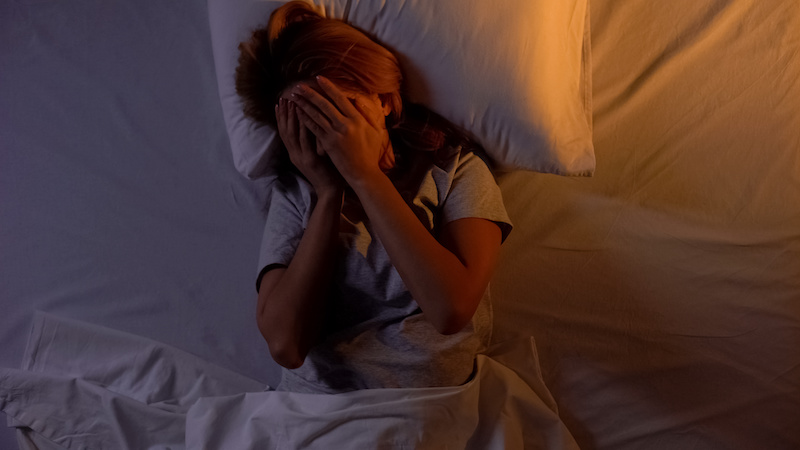
If you have sleep apnea, you know how life-changing your CPAP therapy can be. But what factors can make your sleep apnea worse?
Untreated sleep apnea increases your risk of hypertension, causes changes in your metabolism, and increases your risk for cardiovascular disease. However, you are ahead of the game if you are already using your CPAP therapy equipment. You can also help to control your sleep disorder by making lifestyle changes.
Read on to find out what can make your sleep apnea worse.
How Do You Sleep?
Your sleep apnea can become worse because of your sleeping position. For those with Obstructive Sleep Apnea, your sleeping position can make it difficult to get a good night of sleep in certain positions since it affects the way you breathe. For instance, sleeping on your back can make your sleep apnea worse.
This position makes your jaw and tongue drop back towards your throat. It leads to narrowing of your airways and makes it difficult to breathe. To compact this, try sleeping on your side.
Sleeping on your side allows gravity to work with you and not against you as back sleeping would. However, try out different sleeping positions to see which one works best for you.
Changes to Sleep Cycle
When sleeping, you usually transition between the sleep stages and between REM (rapid eye movement) and non-REM sleep. The sleep stages include:
- Stage One: Sleep Onset
- Stage Two: Slow-Wave Sleep Begins
- Stage Three: Begin to Experience Deep Sleep
- Stage Four: Deepest Sleep
- Stage Five: REM Sleep
Sleeping consists of transitioning through the different cycles every 90 minutes. This sleep stage consists of the eyes moving rapidly in different directions. The sleeper may experiences dreams.
But what causes untreated sleep apnea to worsen in relation to the stages of sleep? Untreated sleep apnea can interrupt your sleep cycle. The breaks in breathing cause your sleep periods to break up in sessions, forcing you to wake up and start the sleep cycles back from square one.
Your oxygen levels also drop during REM sleep, and your breathing speeds up. During REM sleep, your dreams are more intense because your brain is active. This stage is important for a variety of reasons.
It stimulates the areas of your brain that increase the production of proteins. REM sleep also revitalizes the area of the brain that helps with learning. Stage three is where deep sleep occurs. It is where your body strengthens your immune system and carries out self-healing.
As you age, you will get less deep sleep and sleep lighter. You also will sleep for shorter periods. Untreated sleep apnea only makes this situation worse. It becomes impossible to get quality sleep and wake up feeling rested when you are not completing the sleep cycles in their entirety.
Weight
Excess weight gain is one of the lifestyle factors that can make sleep apnea worsen. When a person becomes overweight, he or she develops pharyngeal fat. Pharyngeal fat creates fat deposits in your neck. These fat deposits block your upper airways while sleeping, and this is a time when your airway is already in a relaxed state.
This development is one of the reasons for snoring when you have untreated sleep apnea. Your air is squeezing through a narrow hole, which causes the loud sound. Obesity also increases the size of your abdomen because of the excess fat.
This excess fat puts pressure on your lungs and reduces your lung capacity. It shrinks your airflow, which causes your airway to collapse during sleep. Obesity also can heighten your symptoms and increase your risk for other serious diseases.
Think You May Have Sleep Apnea? Take Our FREE Sleep Apnea Quiz!
Avoid Drinking Alcohol
Alcohol increases your risk for sleep apnea by possibly making it difficult to breathe while sleeping. Drinking alcohol relaxes the muscles in your throat, which makes your upper airway more likely to collapse. Alcohol also may cause you to snore.
Some people drink alcohol to help with sleeping. Initially, alcohol makes you sleepy, but it wears off. Your sleep then becomes fragmented, and you may develop insomnia.
However, you can develop a tolerance for alcohol. You will have to increase your alcohol consumption if you drink regularly. Daytime sleepiness is also a side effect of using alcohol to fall asleep at night. Alcohol will impair your performance in other aspects of your life as well.
Quit Smoking
People who smoke are at a higher risk for developing sleep apnea. Smoking causes the tissues that line your upper airway to become inflamed. The inflammation leads to swelling and the buildup of mucus in your upper airway. It increases your risk of developing and the severity of Obstructive Sleep Apnea.
Smoking makes it difficult to get a good night of sleep. You may have a hard time falling asleep, may experience snoring, or wake up frequently throughout the night. This habit also interrupts your sleep cycle.
It affects your ability to breathe as well. Smoking adds an additional strain on your lungs, airway, and body. When your sleep apnea goes untreated, it puts you at risk for serious health conditions. These health conditions include diabetes, stroke, heart problems, and airway inflammation.
Women and Menopause
Menopausal women experience certain symptoms that put them at risk for developing sleep apnea. These symptoms include weight gain, trouble sleeping, mood swings, hot flashes, poor concentration, and joint pain.
Menopause symptoms can overlap with symptoms of sleep apnea, so it helps to recognize the signs.
If sleep apnea has developed due to menopause, express your concerns to your doctor or sleep specialist.
Getting Older
As you get older, you lose muscle from different areas of your body, including muscle tone within your airway. Loss of muscle tone makes your sleep apnea worse. It becomes harder for your airway to stay open.
Sleep also changes as you become older. It is recommended that a senior needs between seven to eight hours of sleep a night to feel rested.
As you get older, your quality of sleep goes down as well. Some older adults may suffer from chronic medical conditions.
Unfortunately, you cannot stop the aging process. It helps to get regular exercise and eat a healthy diet.
Medical Conditions
Some medical conditions can make your sleep apnea worse such as diabetes, high blood pressure, congestive heart failure, and Parkinson’s disease.
High blood pressure and diabetes raise your cardiovascular risk. A person with high blood pressure has a higher chance of developing sleep apnea. These health conditions will heighten your sleep apnea symptoms.
Seasonal allergies and nasal congestion are also common conditions that can make your untreated sleep apnea worse. These conditions can block airflow to your upper airway, making it hard to breathe.
It is essential to seek treatment for sleep apnea as untreated sleep apnea can cause long-term problems for your health. Talk to your doctor about what you’re experiencing, and the next steps towards a better night of sleep.





